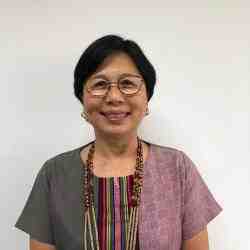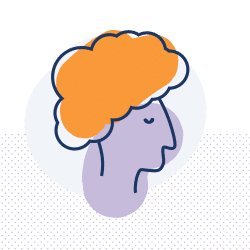Introduction
Somsak Boonkam is increasing the economic participation of local host communities in the tourism industry in Thailand, one of the world’s most popular tourist destinations. He is creating new infrastructure to pool limited resources of small communities, enabling them to compete in the mainstream tourism market while respecting each community’s carrying capacity and benefiting from a more just profit-sharing model.
The New Idea
Somsak Boonkam is creating a one-stop service for sustainable tourism, designed and owned by local communities. He recognizes that many sustainable tourism initiatives in the past have been short-lived, either due to the lack of steady clientele or the inability of local hosts to compete with large-scale tourism businesses. In 2012, Somsak founded LocalAlike to pool limited resources of small host communities and increase their collective competitive advantage. He is training communities to redesign travel packages based on local carrying capacity, by forming collaborative clusters of communities which can share limited resources such as sleeping facilities, English-speaking tour guides, licensed trek leaders and computer-savvy support staff. To attract a steady flow of clients, Somsak has created an online marketplace for meaningful travel packages, generating new demand for sustainable tourism instead of pitting small communities against one another in a highly competitive tourism market. Somsak works with a variety of local hosts, reviving previously unsuccessful models of community-based tourism as well as diverting communities from financially and environmentally unsustainable tourism. To ensure financial viability, Somsak has reversed the profit-sharing scheme between hosts and tour operators, allowing for local hosts to retain at least 70 percent of tourism revenue, including a 5-percent contribution to public funds set up in each community to address urgent needs such as waste management. Somsak is currently working with the largest global marketing arm of Thailand’s tourism industry, Tourism Authority of Thailand, to redefine cost calculations for sustainable tourism packages, to promote concrete standards in fair pricing and sustainable consumption of local resources. He has also initiated partnerships with various national and international companies to divert mainstream tourism clientele toward sustainable tourism. Somsak is currently working with more than 30 pilot communities throughout urban and rural Thailand, and expanding to other countries in Southeast Asia including Indonesia and Vietnam.
The Problem
Host communities benefit very little from the tourism industry. According to United Nations Environment Program estimates, only five percent of tourist spending trickles down to the local community economy. Approximately 80 percent of tourism expenditure goes toward foreign-owned airlines, hotels, travel agencies and imported consumer goods. The remaining 15 percent stays within urban centers of the host country.
The concept of sustainable tourism, or tourism managed by local host communities, was official introduced more than two decades ago as part of the global action plan for sustainable development of the 21st Century, or Agenda 21. This action plan was adopted by 178 nations at the 1992 United Nations Conference on Environment and Development, commonly known as the Earth Summit. However, sustainable tourism has had limited success in practice. Many sustainable tourism initiatives have collapsed over time, either due to the lack of steady clientele or the inability of local communities to compete with mass-market tourism businesses. For example, local businesses struggle to compete with global hotel franchises and large travel agencies with the financial capacity to advertise and attract clients at a national and international level.
Growth is a highly controversial indicator of success in the tourism industry, due to inequitable income distribution. Many communities witness their local resources exploited in exchange for an increase in the number of visitors, but the growth becomes unsustainable. Tourists are constantly moving on to the next ‘untouched’ destination – pristine forests and hidden cultures. In popular tourist destinations, local businesses with limited investment capital and marketing outreach eventually lose out to large hotel franchises and tour agencies. Local residents soon become employees in their own hometowns, working in low-paying jobs as maids, books, porters and waste pickers, instead of benefiting from the tourism industry as business owners.
In Thailand, sustainable tourism was a trend 20 years ago, but less than 10 percent of these communities have managed to maintain sustainable tourism as a viable business. Nonetheless, Thailand’s tourism industry continues to grow exponentially. In 2015, 29.8 million foreign tourists visited the nation, reflecting 100 percent growth in ten years, and generating more than 550 billion baht (nearly 16 billion US dollars) in revenue. Meanwhile, local communities continue to be excluded from the majority of profits, despite sharing their natural resources and cultural heritage as part of the tourism package. For instance, many local residents cannot afford to leave their regular jobs to complete the costly and lengthy university training requirements to become a licensed tour guide. Local community groups do not have the necessary capital to register as government-licensed tour operators. The cost of registering as a tour operator ranges from 10,000 to 50,000 Thai Baht (about 300-1,500 US dollars) to receive Thai tourists and 100,000-200,000 Thai Baht (3,000-6,000 US dollars) to receive foreign tourists. Without proper licenses, residents are prohibited from leading tours in their own communities, resulting in a lack of communication and understanding between tourists and host communities. In many communities across Thailand, tourists disembark from a bus, walk around the villages and take photos of local residents as if they were part of the scenery. Tourism becomes an assault not only on local resources, but also community dignity.
The Strategy
Somsak is removing barriers to economic participation for host communities in the tourism industry. He founded LocalAlike company in 2012 to enable host communities to become leaders of the decision-making process, resulting in competitive tourism activities that are meaningful for tourists and truly driven by local residents.
Unlike the typical tour operator, the priority of Somsak’s company is to create financial independence and sustainability in resource management among local hosts. Somsak spends an average of eight months in training residents of each host community, according to a series of 13 skills-building workshops he designed, with the goal of enabling local hosts to create and manage their own tourism activities. The skills include how to determine local carrying capacity, how to transform local stories into meaningful and competitive tour packages, how to pool resources with nearby communities, how to use simple online tools to market tours and manage finances, as well as how to identify priority issues of concern and identify ways that tourism can be managed to meet local needs. The goal of this process is twofold: to develop community consensus and to stimulate wider community participation. Through these workshops, Somsak’s team is able to identify natural leaders in the community, who will be representative of the local constituency, able to engage diverse groups of residents from different age groups and professions, and dedicated to lead tourism activities in the long run. As part of this process, host communities elect residents to various management teams, such as homestay committee, transport committee and tour guide committee.
In addition, Somsak assists each village in setting up an elected body to manage the Community-Based Tourism Fund, earmarked at 5 percent of tourism revenue and an additional 5 percent contribution from Somsak’s company. The purpose of this public fund is to address urgent needs as determined by local residents, including residents who are not directly involved in tourism activities, according to Somsak’s belief that sustainable tourism must compensate for the consumption of public resources. Host communities vote to determine their priority needs, resulting in different uses of the public fund. For example, an urban slum community in Bangkok uses the public fund to organize recreational activities to engage local youth. A remote rural community in the northern Thai province of Chiang Rai uses the public fund to set up a waste management system, to eliminate plastic waste from their canals and forested areas. Another community uses the public fund to create a playground and sports field for local children, without having to wait for government budget allocation. Beyond the financial benefits, this public fund has become an empowering mechanism for local residents to identify their needs and solve their own problems, using profits from the local tourism industry.
In Somsak’s view, tourism activities are sustainable only if they enhance, not replace, local businesses and jobs. In developing community consensus about the goals and designs of local tourism, he emphasizes that tourism must remain a supplementary source of income. For example, a fisherman cannot run so many boat tours that he is no longer able to fish, and other community residents must respect this limitation in the design and management of local tourism activities. Somsak works with each host community to define clear definitions of their carrying capacity. Moreover, Somsak’s team assists each community in transforming these limitations into meaningful stories for tourists. For example, tourists are invited to experience life as a fisherman, a tea grower, a royal chef, a jewelry maker, etc. As a result, LocalAlike tours are unique and competitive even in the mainstream tourism market, because each tourism activity is part of real community experiences.
Recognizing past limitations of community-based tourism, Somsak is creating collaborative networks of local communities to pool limited resources. He links nearby communities in the design of mutually beneficial tour packages, highlighting different strengths and compensating for different weaknesses. For instance, one village wants to promote local industry in organic tea production but does not have the capacity to receive overnight tourists. Somsak’s team connects this village with other villages along the same highway, to attract a steady stream of visitors to all destinations. In other villages, Somsak’s team designs tour packages to share other limited resources, such as English speakers, licensed tour operators, and internet access for managing reservations and online marketing. The result is a collaborative environment generating more collective demand and more clientele for all destinations, instead of individual communities competing against one another.
By developing local tourism networks, Somsak increases the negotiating power of local communities in improving access to infrastructure and services, ultimately benefiting both tourists and local residents. One community, Suan Pa Village in northern Thailand, was able to negotiate with their local government and all local residents, to introduce a weekly trash pick-up service in exchange for a small fee paid by every household. This village originally suffered trash accumulation in local canals, because the government said the village was too far and isolated for trash pick-up services. In three other communities in northern, northeastern and southern Thailand, Somsak set up a corporate volunteer program with a regional airline in Asia, providing English-language tutors to local youth and other residents.
To compete with the mainstream tourism industry, Somsak has initiated collaborative tour packages between local communities and large-scale businesses. For example, sustainable hiking tours for guests at nearby five-star hotels. He is also in the trial phase of collaboration with a global tour operator, which is testing five different adventure tour packages with LocalAlike, before sending a guarantee of 5,000 day visitors per year to LocalAlike’s community destinations. In every financial transaction, Somsak guarantees that local communities earn 70 percent of the tour price. According to a survey by LocalAlike, Somsak estimates that local household earning increases by 20 percent from the supplementary income from community-driven tourism.
Within the first two and a half years of establishing LocalAlike, Somsak’s partnerships have grown from 8 to more than 30 communities. His client list has also grown to more than 300 individuals and 30 corporate clients, 30 percent of which are repeat customers. Originally funded by award money from business plan competitions in Thailand and Asia, LocalAlike has now been able to raise initial capital investment of 8 million Thai baht (about 230,000 US dollars). Somsak is actively promoting LocalAlike’s approach to community-driven tourism as a win-win business strategy. He has been invited as guest lecturer at every business school in Thailand. He encourages mass media coverage of LocalAlike’s community-driven tourism packages. Somsak also serves as a speaker at business forums for various tourism business associations, local governments overseeing popular tourist destinations and the national Department of Tourism.
At the policy level, Somsak has successfully advocated with the Tourism Authority of Thailand and the national Department of Tourism to increase the economic participation of local host communities. Due to Somsak’s efforts, LocalAlike was selected by the Thai government to develop 15 model communities for sustainable tourism in collaboration with 15 local governments, and to distill best practices into a national guideline for sustainable tourism development in Thailand. In March 2016, the Thai government announced policy support for community-driven tourism, and assigned LocalAlike with the task of developing a model community business enterprise in sustainable tourism. Somsak is also working with the Community-Based Tourism Institute, Thailand’s largest network of communities interested in sustainable tourism activities, to replicate LocalAlike’s working model in more than 200 communities nationwide. In the future, Somsak also plans to expand LocalAlike’s model to some 2,000 communities in neighboring countries in Southeast Asia.
To facilitate direct connection between local communities and tourists, Somsak’s team is currently developing an online ‘marketplace’ platform on www.localalike.com to enable individual communities to manage their own tourism businesses and market to clients worldwide. Somsak is working with local partners in Indonesia and Vietnam to spread his work using this online platform.
To ensure that his company maintains its social mission, Somsak has submitted the application to certify LocalAlike as the first B Corp in Thailand. Somsak will maintain majority shares (55 percent) of LocalAlike company, and LocalAlike company will maintain majority shares (55 percent) of its subsidiary company, LocalAlike Dot Com, which is open to outside investors. Over the next three years, Somsak expects to work with local partners in Thailand to expand his work to 200 communities and initiate new partnerships with international partners to expand LocalAlike to compete in the Southeast Asia tourism market.
The Person
Born in the rural province of Roi Et in northeastern Thailand, 33-year-old Somsak was raised by parents who worked as low-wage laborers. As a child, he was sent away to pursue better education and job opportunities. In his twenties, Somsak already achieved outstanding success, having graduated with a prestigious bachelor’s degree in engineering and industrial technology, and selected to work in Europe for in a high paying managerial position for an international company. However, Somsak spent his vacation days traveling to poor remote villages in Laos, Myanmar and India and realized he could do more. He was alarmed by the fact that most tourist spending did not reach local villages. Even worse, Somsak observed that many tourists were taking photos of local residents as if they were animals in a zoo. He pursued an MBA in sustainable business and returned to Thailand to work in business development for local community enterprises. Somsak saw many villages struggling to make ends meet, while countless tourists shuffled in and out of their villages, contributing very little to the local economy. Somsak developed a business plan in collaboration with local residents and presented it to tour operators in Bangkok, and his idea was immediately rejected. Instead of abandoning his idea, Somsak decided to set up LocalAlike to pursue his passion even further, to become a company that values local host communities as equal partners in the tourism business.




